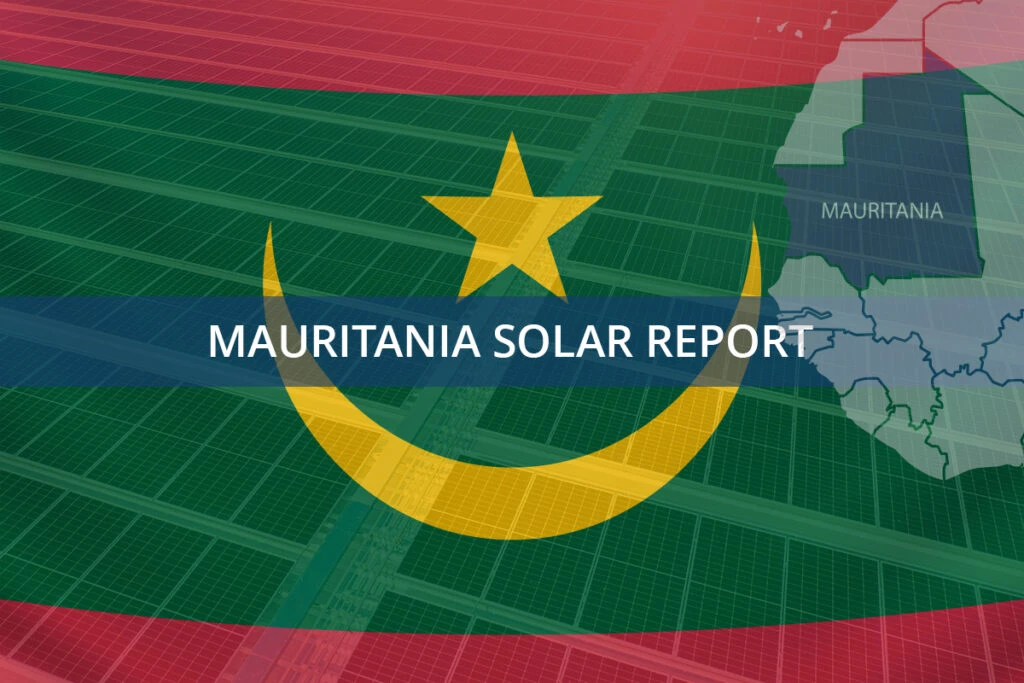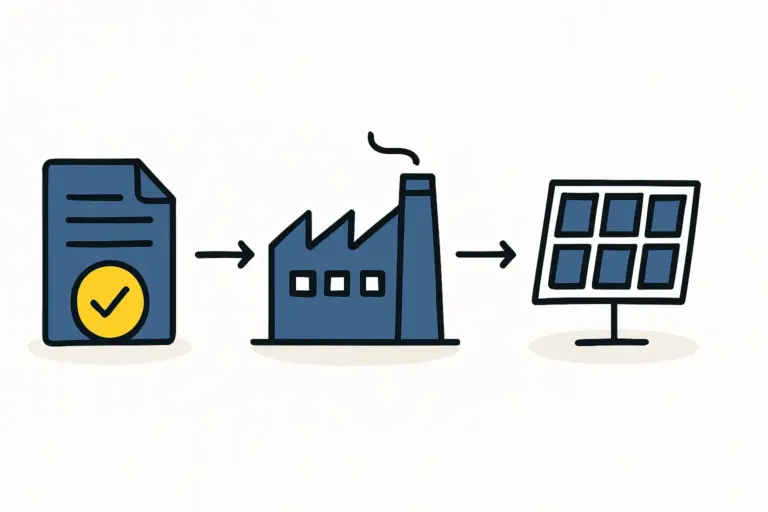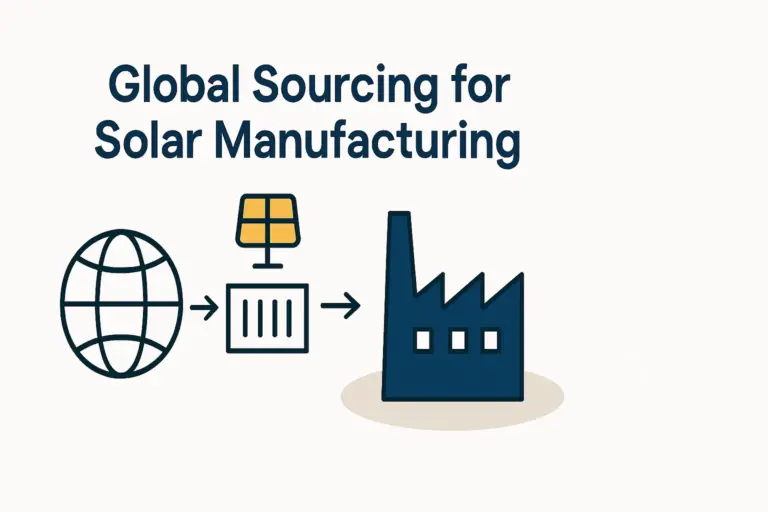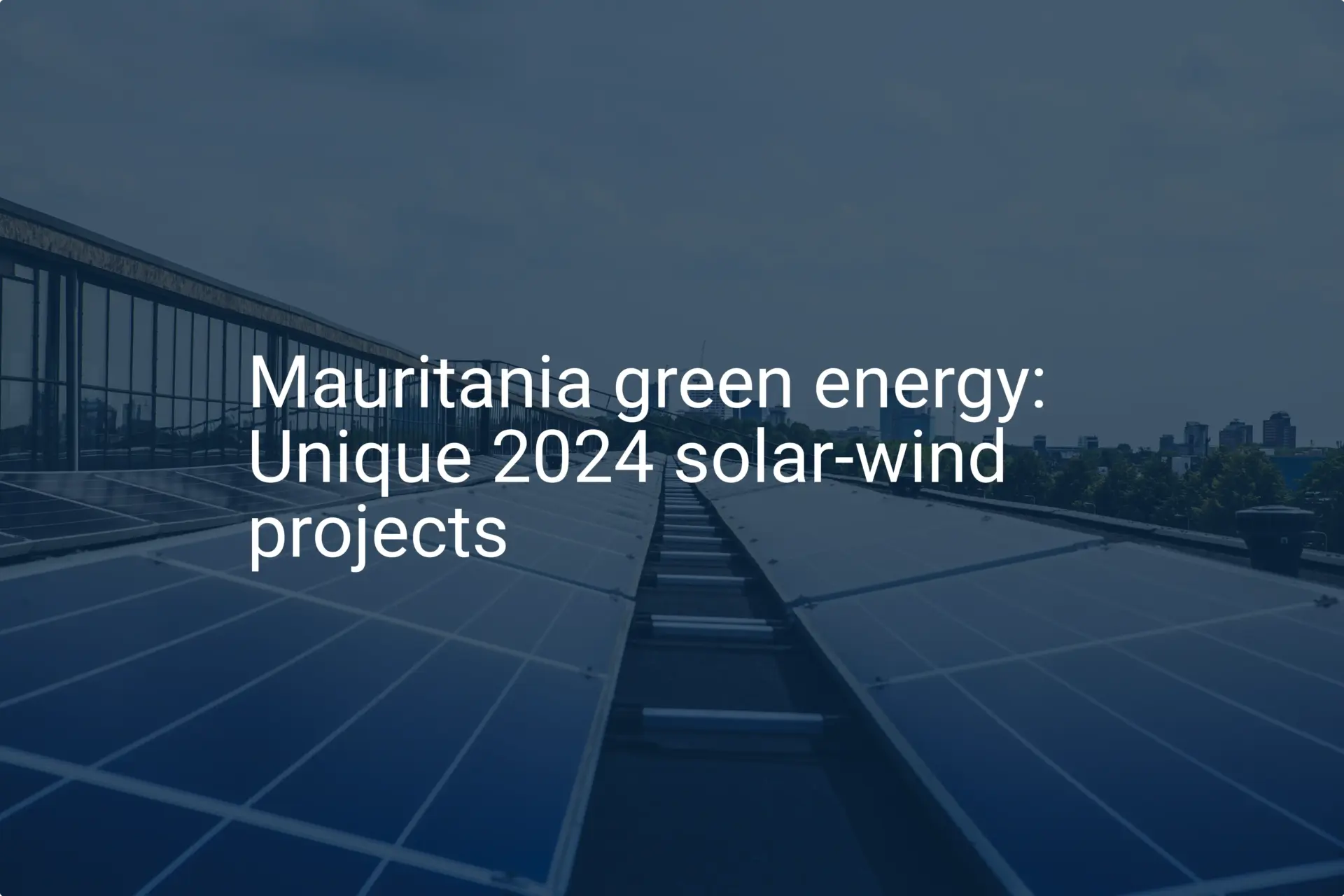An entrepreneur standing in Nouakchott sees more than just sand and sun; they see potential. With over 3,000 hours of sunshine annually, Mauritania has one of the world’s most significant solar resources.

Yet for any serious investor, the question isn’t just about sunlight; it’s about the stability and predictability of the business environment. How does a government translate natural advantage into a secure, profitable investment opportunity?
In Mauritania, the answer lies in its Investment Code, specifically Law n°2012-050. This legislation is more than a set of rules; it is a clear signal to the international business community. The code is designed to mitigate risk and create a fiscally attractive landscape for new enterprises, particularly in priority sectors like renewable energy. This guide moves beyond generalities to break down the specific fiscal incentives available to solar module manufacturers, examining the articles that directly impact a project’s bottom line.
Understanding the Foundation: Mauritania’s Investment Code
At its core, Mauritania’s Investment Code aims to attract foreign capital, promote local job creation, and encourage export-oriented industries. For a business professional considering a new solar venture, two foundational articles set the stage:
-
Article 2: This article broadly defines ‘investment’ to include the establishment of new enterprises like a solar module factory, making it clear the code applies to projects starting from the ground up.
-
Article 4: This article guarantees equal treatment by stipulating that foreign investors receive the same rights and protections as their national counterparts. This principle is crucial for building trust and ensuring a level playing field.
The code is essentially a government’s commitment to fostering a predictable environment where capital can be deployed with confidence.
Privileged Regimes: Structuring Your Investment for Maximum Benefit
The most significant incentives are found in Article 21, which details the code’s ‘Privileged Regimes.’ The government classifies investments into three tiers—Regime A, Regime B, and Regime C—based on the investment amount and the number of permanent jobs created.
By categorizing projects this way, the code provides a clear roadmap for investors. A larger-scale project that generates more local employment will qualify for a higher tier of benefits. Understanding these thresholds is a critical first step in structuring a business plan for a solar panel factory that aligns with the available government support.
Phase-Specific Fiscal Incentives for Solar Manufacturing
The Investment Code intelligently separates benefits into two distinct project phases: the initial setup (installation) and the long-term operation. This structure allows investors to manage capital expenditure and forecast profitability with greater accuracy.
Benefits During the Installation Phase (Article 22)
For any manufacturing project, the initial setup involves significant capital outlay on machinery and materials. Article 22 directly addresses this by offering substantial relief during the installation phase, which can extend up to three years for renewable energy projects.
Key exemptions include:
-
Full Exemption from Customs Duties and Taxes: All imported solar panel manufacturing equipment and materials necessary for the factory setup are exempt from import tariffs. This dramatically reduces the initial investment cost.
-
Value Added Tax (VAT) Exemption: The exemption extends to VAT on imported goods and services, further preserving capital during the critical construction and commissioning stages.
Based on experience from J.v.G. turnkey projects in emerging markets, these upfront savings can be the deciding factor in a project’s financial feasibility.
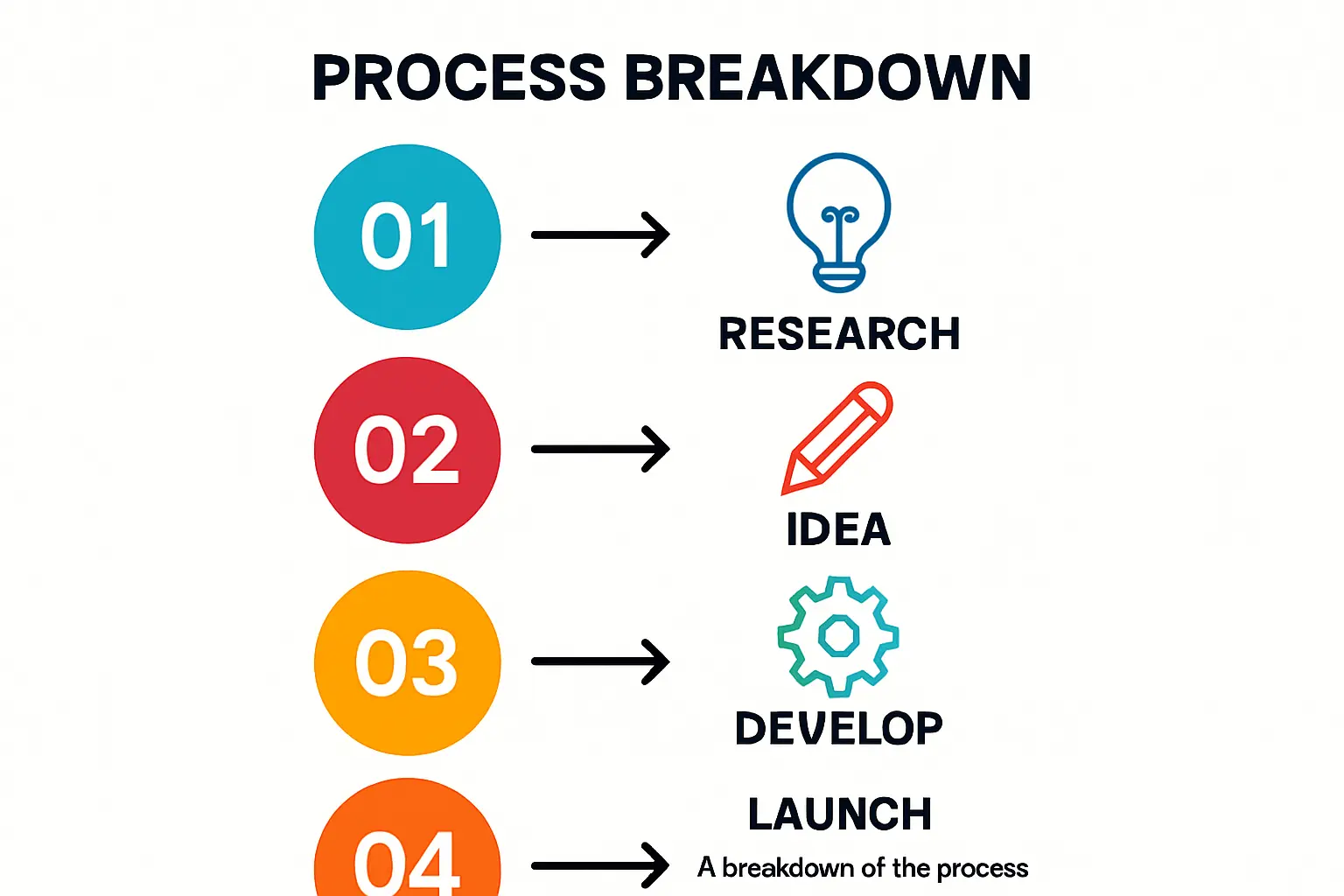
Benefits During the Operational Phase (Article 23)
Once the factory is operational, the focus shifts from capital expenditure to operational profitability. Article 23 offers a powerful set of incentives designed to support the business during its initial years of production.
For enterprises in the renewable energy sector, these benefits can last for up to seven years and include exemptions from:
-
Corporate Income Tax (BIC – Bénéfices Industriels et Commerciaux): A complete tax holiday on profits for a significant period allows the company to reinvest earnings, accelerate growth, and achieve a faster return on investment.
-
Minimum Flat-Rate Tax (IMF – Impôt Minimum Forfaitaire): This exemption removes the burden of a minimum tax, which is particularly helpful in the early years when revenues may be unpredictable.
-
Business License Tax (Patente): Relief from this standard operational tax further reduces fixed costs.
These operational benefits provide a crucial financial cushion, enabling a new manufacturing facility to establish a strong market position without the immediate pressure of a heavy tax burden.

The Strategic Advantage: Why Renewable Energy Is a Priority
Article 24 of the code allows for additional benefits for investments in designated ‘priority sectors’—a category that explicitly includes renewable energy. This designation is not a coincidence. It directly reflects Mauritania’s national strategy to increase renewable energy to 50% of its total energy mix.
For an investor, this means the government is not just a regulator but a strategic partner. The incentives are aligned with long-term national development goals, suggesting sustained political support for the sector. This alignment provides an added layer of security for those considering the investment required for a solar panel factory.
Frequently Asked Questions (FAQ)
What officially qualifies as an ‘investment’ under this code?
An investment includes the creation of a new legal entity in Mauritania and the acquisition of assets (machinery, buildings, materials) for a new productive activity or a significant expansion of an existing one.
Are these tax and customs benefits applied automatically?
No. An investor must submit a formal application to the government’s investment promotion agency, which operates as a one-stop shop. The project must be approved and granted an ‘establishment agreement’ that officially confers the benefits of a Privileged Regime.
Can an existing business in another sector qualify for these benefits if it expands into solar manufacturing?
Yes, provided the expansion is substantial and meets the investment and job creation thresholds outlined in Article 21, it can be considered a new project eligible for the Privileged Regimes.
Besides these incentives, what are the primary challenges to consider?
While the fiscal framework is attractive, investors must conduct thorough due diligence on logistical and infrastructural challenges, such as the reliability of port facilities, inland transportation networks, and the availability of a skilled local workforce.
Conclusion: Turning Legal Frameworks into a Business Advantage
Mauritania’s Investment Code is a well-structured and compelling framework designed to attract serious, long-term investors in the renewable energy space. By offering specific, legally-backed exemptions during both the installation and operational phases, the government has created a powerful tool to de-risk and incentivize the establishment of solar module manufacturing facilities.
For the international entrepreneur, understanding these articles is the first step in transforming a country’s vast solar potential into a viable and profitable enterprise. The code provides the clarity and security necessary to build a robust financial model and embark on a successful investment journey.

